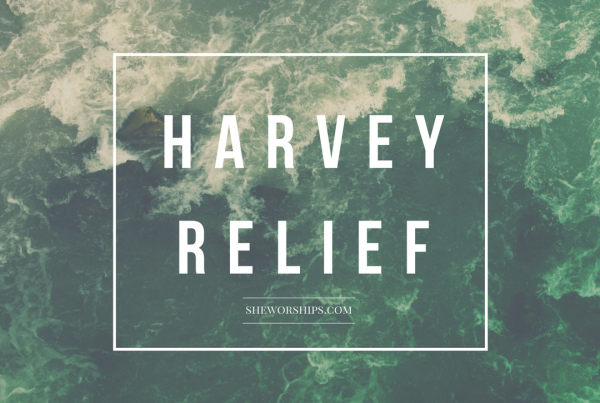Today my heart is heavy. Two months ago, Americans were filled with compassion. The image of a little Syrian boy washed up on a shore, alone and dead, it rocked us. It moved us to action. We wanted to help, to welcome, to give.
Then Paris happened. And suddenly we realized, helping the vulnerable might actually cost us something. That is when fear began to whisper in our ears. And then yesterday it roared. And then Americans began calling for tighter security, closing our borders, putting up walls.
There is a lot I could say in response to this fear. I could list all the reasons why we shouldn’t be afraid–and there are many–but fear isn’t really rational, is it? Logic isn’t really the point.
Instead, I feel prompted to offer a reminder, of what fear does. Historically, in our nation, this is where fear has taken us. When you follow the fear, this is what you find…
Americans opposing the immigration of Irish refugees. Americans were more concerned with the immigrants’ Catholicism than sheltering them from the ravages of famine.
Americans refusing to welcome Jewish refugees who were fleeing the Nazi regime. As a result, we accepted a drop in the bucket of Jewish victims, and per capita, we accepted far fewer refugees than other countries.
Imprisoning 120,000 innocent Japanese Americans in internment camps during World War II.
Of course, the weight of American fears has not come down on immigrants alone. They have impacted minorities, the poor, our school systems, our response to crime, our policies on war.
But if we turn back even further, and follow the fear, here is what we find also…
Young Jewish boys slaughtered, because Herod heard rumors of a rival King.
Peter denying his savior, three times.
Jesus crucified as a political threat, and a religious one.
Disciples, Christ-followers, turning their backs, for fear of being crucified too.
Then and now, it is easy to see that fear and love do not easily co-exist. Even when the fear is legitimate–Peter’s fear was legitimate. The disciples’ fear was legitimate!–fear keeps us from obedience. It compromises our witness. And too often it does the most harm to those we are actually called to protect.
It is the reason why, over and over and over, God beseeches us, “Do not fear.” This is not some sweet, self-help message, simply designed to get us through the day. No no, God commands, “Do not fear!” because our witness is on the line. The lives of women and children are on the line. Our credibility as the people who lay down our lives for God and His will–it is all on the line.
Fear is the enemy of obedience. It immobilizes. It makes us hesitant to show the kind of radical love that Jesus showed. THAT is why God says “Do not fear.” Because it’s about WAY more than you.
So if you detect that fear creeping in, if you feel inclined to board up the windows and hide from a scary world, remember what fear has done. Remember where fear has taken us. Follow the fear.
I think you’ll find that the world has more than enough of fear.
Sharon
Sharon








Thank you so much for your words.
As someone who has wrestled with fear much of my life, this is so true. Fear paralyzes, on the one hand, and can cause us to do stupid things on the other. Thank you. (Also for accuracy’s sake you might want to edit the number of boys killed by Herod. If you are referring to the account in Matthew, the number of boys that age killed in Bethlehem would have been much smaller.)
Good catch! I actually had to go back and look that up. I learned something new today!
I so appreciate reading your posts, Sharon. God has given you a gift in being able to speak unwavering truths in a way that is humble enough that I think (and hope!) that it causes folks to listen and self-examine. Thank you for following Jesus in “speaking in the daylight” and “proclaiming from the roofs” what God is telling you to write.
I think you’re confusing fear with wisdom. Was God fearful when he commanded the Israelites to drive out the inhabitants of the Promised land? Was it a fearful command when God said foreigners who joined the tribes of Israel needed to follow ONLY the one true God and needed to obey the Law of Moses?
Here’s the problem… you’ve bought into the lie that says we can only love these people by bringing them into our country indefinitely, with full benefits. Is it not possible to help them in the Middle East? There are peaceful and safe places within a couple hours of anywhere in Syria. Jordan and Turkey are completely safe, and they border Syria. If these people were truly fleeing for their lives, they would go to those places. God has called us to be as innocent as doves but He also called us to be wise as serpents… Not blindly gullible. The faith of these refugees is completely incompatible with our Constitution and our Christian values. Allowing them into our country unconditionally and permanently will be a tragedy that our children and grandchildren will pay for.
Let’s use wisdom and help them where they’re at. It’s possible to help a homeless druggie without inviting him to sleep in the bedroom next to your young daughter…. Likewise we should use wisdom when helping these Muslim people.
Phil, I’m not quite sure why you are comparing refugees to homeless druggies. Most of these people are more like you’re young daughter in that scenario–it’s like refusing to let your neighbor’s daughter in your house after her home burns down. “Here’s a blanket and some food, but don’t come in.” This is especially true considering our vetting process is one of the strictest in the world, so the people being accepted are the cream of the crop. Not to mention the COUNTLESS verses in Scripture about welcoming the foreigner and the refugee and protecting the vulnerable. I just don’t see any way around it. You encounter welcome and hospitality for the stranger at every turn–not arms length charity.
I do think we should be sending resources overseas, which we are doing and should continue to do. But we should also shoulder the burden with the rest of the world. I’m not sure why other countries should have to accept refugees and not us. If we want people to know Jesus loves them and to hear the gospel, here is God, placing them on our doorstep, and we’re turning them away.
Sharon, I appreciate your comments, and you speak truth. To be fair, though, it is hard to get good information on the real truths of the Syrian refugee situation, due to sensationalism and misinformation on the part of the media and political candidates. I think many are responding, not necessarily with fear, but with concern based on exaggerated reports of threat. And we all tend to be gullible in our areas of greatest concern.
Bonnie, I think you’re right, which is why I have been listening closely to my friends who work in immigration law. Here is one statement from an immigrations lawyer named Scott Hicks that is especially helpful:
Most of my friends know I practice Immigration law. As such, I have worked with the refugee community for over two decades. This post is long, but if you want actual information about the process, keep reading.
I can not tell you how frustrating it is to see the misinformation and outright lies that are being perpetuated about the refugee process and the Syrian refugees. So, here is a bit of information from the real world of someone who actually works and deals with this issue.
The refugee screening process is multi-layered and is very difficult to get through. Most people languish in temporary camps for months to years while their story is evaluated and checked.
First, you do not get to choose what country you might be resettled into. If you already have family (legal) in a country, that makes it more likely that you will go there to be with family, but other than that it is random. So, you can not simply walk into a refugee camp, show a document, and say, I want to go to America. Instead, the UNHCR (United Nations High Commissioner on Refugees) works with the local authorities to try to take care of basic needs. Once the person/family is registered to receive basic necessities, they can be processed for resettlement. Many people are not interested in resettlement as they hope to return to their country and are hoping that the turmoil they fled will be resolved soon. In fact, most refugees in refugee events never resettle to a third country. Those that do want to resettle have to go through an extensive process.
Resettlement in the U.S. is a long process and takes many steps. The Refugee Admissions Program is jointly administered by the Bureau of Population, Refugees, and Migration (PRM) in the Department of State, the Office of Refugee Resettlement (ORR) in the Department of Health and Human Services (HHS), and offices within the Department of Homeland Security (DHS). U.S. Citizenship and Immigration Services (USCIS) within DHS conducts refugee interviews and determines individual eligibility for refugee status in the United States.
We evaluate refugees on a tiered system with three levels of priority.
First Priority are people who have suffered compelling persecution or for whom no other durable solution exists. These individuals are referred to the United States by UNHCR, or they are identified by the U.S. embassy or a non-governmental organization (NGO).
Second priority are groups of “special concern” to the United States. The Department of State determines these groups, with input from USCIS, UNHCR, and designated NGOs. At present, we prioritize certain persons from the former Soviet Union, Cuba, Democratic Republic of Congo, Iraq, Iran, Burma, and Bhutan.
Third priority are relatives of refugees (parents, spouses, and unmarried children under 21) who are already settled in the United States may be admitted as refugees. The U.S.-based relative must file an Affidavit of Relationship (AOR) and must be processed by DHS.
Before being allowed to come to the United States, each refugee must undergo an extensive interviewing, screening, and security clearance process conducted by Regional Refugee Coordinators and overseas Resettlement Support Centers (RSCs). Individuals generally must not already be firmly resettled (a legal term of art that would be a separate article). Just because one falls into the three priorities above does not guarantee admission to the United States.
The Immigration laws require that the individuals prove that they have a “well-founded fear,” (another legal term which would be a book.) This fear must be proved regardless of the person’s country, circumstance, or classification in a priority category. There are multiple interviews and people are challenged on discrepancies. I had a client who was not telling the truth on her age and the agency challenged her on it. Refugees are not simply admitted because they have a well founded fear. They still must show that they are not subject to exclusion under Section 212(a) of the INA. These grounds include serious health matters, moral or criminal matters, as well as security issues. In addition, they can be excluded for such things as polygamy, misrepresentation of facts on visa applications, smuggling, or previous deportations. Under some circumstances, the person may be eligible to have the ground waived.
At this point, a refugee can be conditionally accepted for resettlement. Then, the RSC sends a request for assurance of placement to the United States, and the Refugee Processing Center (RPC) works with private voluntary agencies (VOLAG) to determine where the refugee will live. If the refugee does have family in the U.S., efforts will be made to resettle close to that family.
Every person accepted as a refugee for planned admission to the United States is conditional upon passing a medical examination and passing all security checks. Frankly, there is more screening of refugees than ever happens to get on an airplane. Of course, yes, no system can be 100% foolproof. But if that is your standard, then you better shut down the entire airline industry, close the borders, and stop all international commerce and shipping. Every one of those has been the source of entry of people and are much easier ways to gain access to the U.S. Only upon passing all of these checks (which involve basically every agency of the government involved in terrorist identification) can the person actually be approved to travel.
Before departing, refugees sign a promissory note to repay the United States for their travel costs. This travel loan is an interest-free loan that refugees begin to pay back six months after arriving in the country.
Once the VOLAG is notified of the travel plans, it must arrange for the reception of refugees at the airport and transportation to their housing at their final destination.
This process from start to finish averages 18 to 24 months, but I have seen it take years.
The reality is that about half of the refugees are children, another quarter are elderly. Almost all of the adults are either moms or couples coming with children. Each year the President, in consultation with Congress, determines the numerical ceiling for refugee admissions. For Fiscal Year (FY) 2016, the proposed ceiling is 85,000. We have been averaging about 70,000 a year for the last number of years. (Source: Refugee Processing Center)
Over one-third of all refugee arrivals (35.1 percent, or 24,579) in FY 2015 came from the Near East/South Asia—a region that includes Iraq, Iran, Bhutan, and Afghanistan.
Another third of all refugee arrivals (32.1 percent, or 22,472) in FY 2015 came from Africa.
Over a quarter of all refugee arrivals (26.4 percent, or 18,469) in FY 2015 came from East Asia — a region that includes China, Vietnam, and Indonesia. (Source: Refugee Processing Center)
Finally, the process in Europe is different. I would be much more concerned that terrorists are infiltrating the European system because they are not nearly so extensive and thorough in their process.
I respectfully disagree with this post. Your implication is that the only two choices are compassion or fear. I believe there can be compassionate, loving, thoughtful responses which come to a different conclusion and aren’t driven by fear. I understand why you would address fear because I’ve seen that as well, but your post is a conversation stopper for anyone who disagrees – they’re labeled. I don’t believe that it serves anyone well.